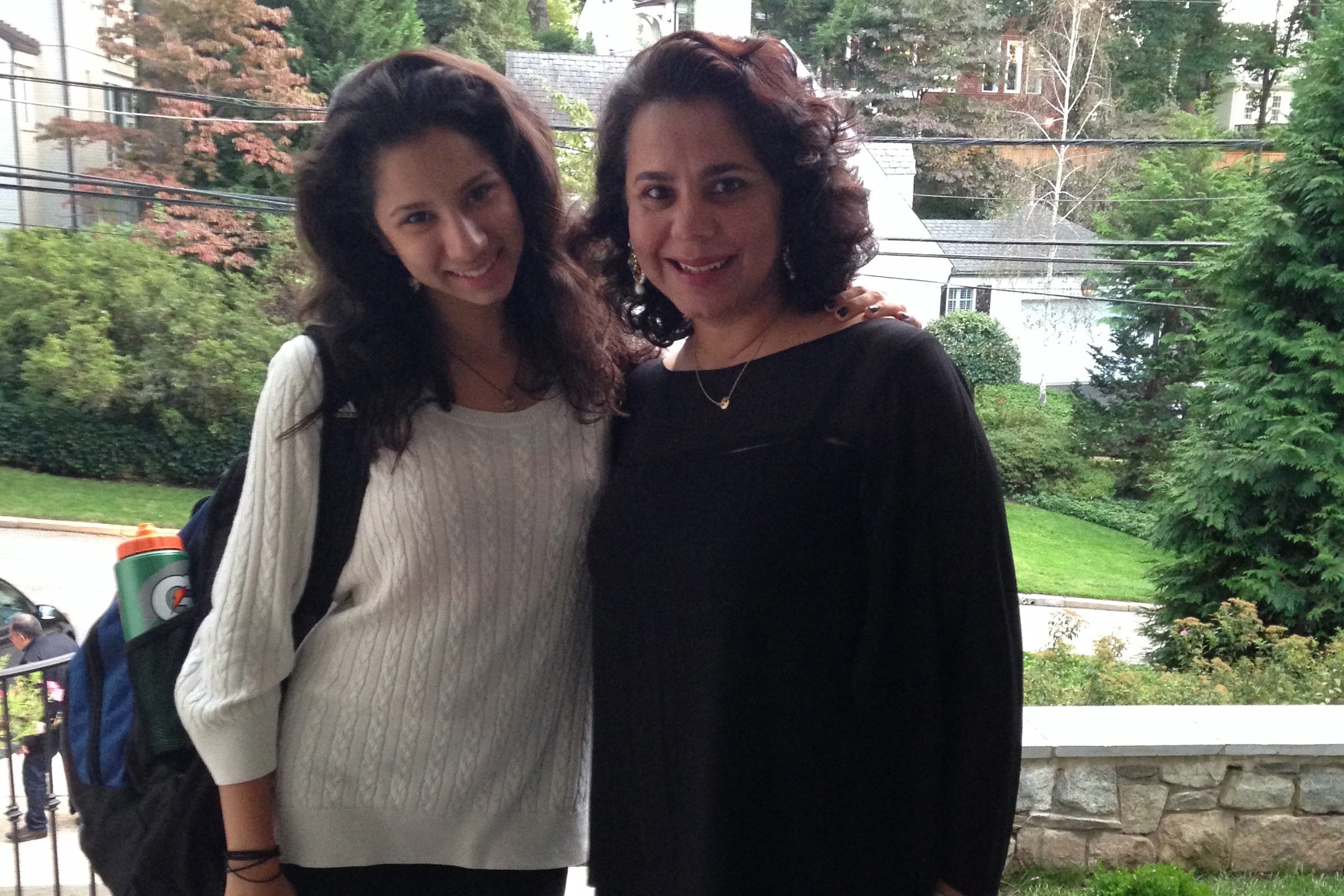Many years ago at my sister’s wedding, I overheard a conversation between my father and one of his old friends. The friend asked my father how he had managed to marry off his two daughters to two good Muslim men when the friend couldn’t persuade his own three grown children to even attend a mosque function. He confided that he had despaired of his children ever finding Muslim mates or remaining within the Muslim faith.
These were sad words coming from a man who had been president of our local mosque for many years. He pressed my father again, “How did you do it?” My father didn’t offer him a concrete answer and instead made some reassuring noises about how it would all work out in the end, but in my head I was screaming, “Pick me! I know the answer. Turn around and ask me!”
The answer is simple. While my father’s friend was incredibly active in our small Muslim community, his offspring were not. Even as small children they never attended our Sunday school classes because “real school” homework took priority over weekend religion classes. My sister and I never saw them at the summer picnics or sporting events organized by the mosque or local Muslim community because they were busy with secular camps. Iftars and Eid Parties were missed for resume building activities that would catch a college admissions officer’s eye.
Our Muslim community might have been small but it was an active one. Social events dotted our calendars—barbeques, firework watching on Canada Day and of course the frequent dinner parties the parents threw that would find my friends and I gathered in the basement or a bedroom as far away from the watchful eyes of our parents as we could manage. My father’s friend’s three children attended maybe one or two events per year, and when they did, they found it difficult to penetrate the cliques of friends that had grown close over a communal hatred of Sunday school homework and a penchant for the chocolate cupcakes served at the mosque iftars. When someone did reach out to include them in our chatter, they were left puzzled by our inside jokes and defeated by the closeness forged from the sheer volume of time spent together. Eventually, both sides just stopped trying.
My father’s friend should have done more to bring his children to the mosque or its ancillary events, but he placed too much value on academic success and succumbed to his children’s complaints that the mosque events were boring and the Muslim kids attending these events, un-cool. What he ended up with were three kids who attended top-tier universities and achieved tremendous professional and financial success, but who have married non-Muslim spouses, do not practice the faith they were born into and are visibly uncomfortable socializing with other Muslims.
I have tried to follow my father and mother’s parenting style. My children have a “second shift” of friends. Like a woman who comes home from her day job only to begin a second shift of work at home, my kids have Muslim friends who they do not go to school with, but actively meet on afternoons and weekends. These friendships were born though Sunday school or mosque events, and these are the children of my Muslim friends. These are the friends who can relate when my kids are at sitting out the spring dance at home. These are the friends who can commiserate over the hardships of fasting in the summer heat or the difficulty of having a hard-to-pronounce name. And these are the friends with whom my children can celebrate religious milestones, like completing the Arabic recitation of the Qur’an for the first time.
My husband and I work hard to foster these relationships because we don’t underestimate the power of positive peer pressure. These kids may not be my children’s best friends–in fact, they may not even be the friends they would have chosen for themselves–but they are the ones with whom my kids share a history and religious traditions, and we hope that maybe one day they will choose prospective spouses from this group. Ultimately, we want our children to own their Muslim identity in a way that will translate into comfort with Islam as a faith and themselves as Muslims in America.
“How did you do it?” my father’s friend had asked. This is how, I wanted to say. While nothing can guarantee that one’s children remain observant Muslims, cultivating a community of Muslim friends for our kids is one ingredient that can only help keep them involved in their faith.
Nausheena Ahmed was born in England, raised in Canada and is currently living in New Jersey. She is busy raising three kids who keep her busy, keep her active and have turned her hair prematurely gray.
















